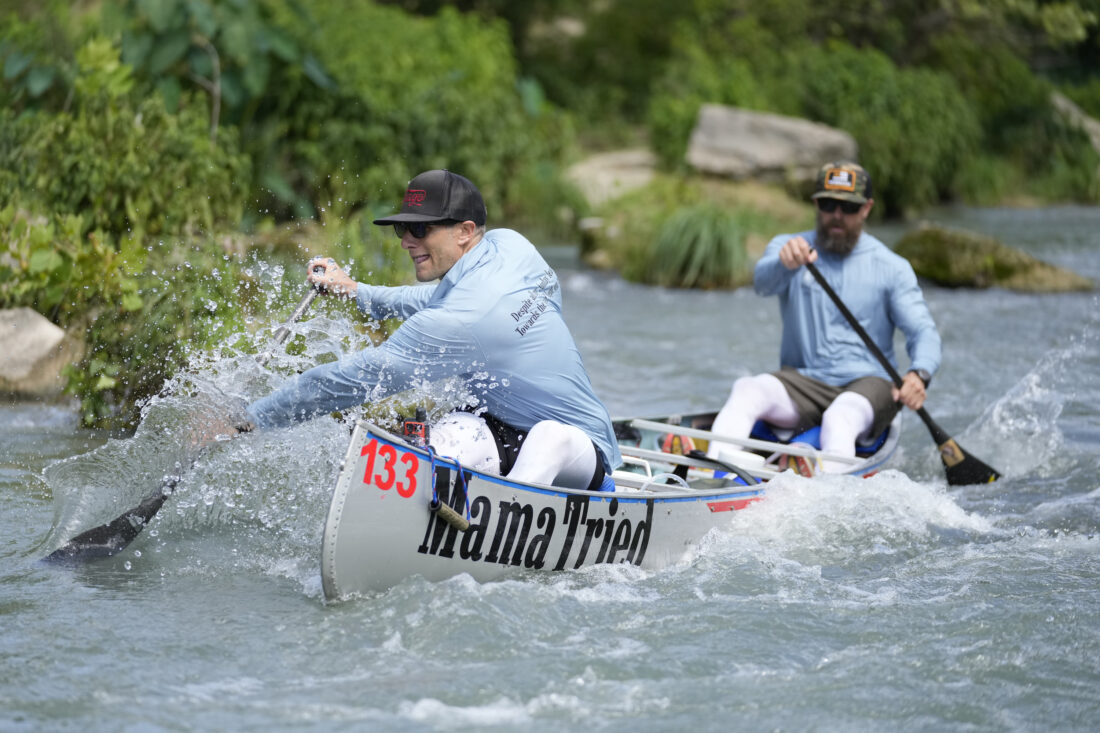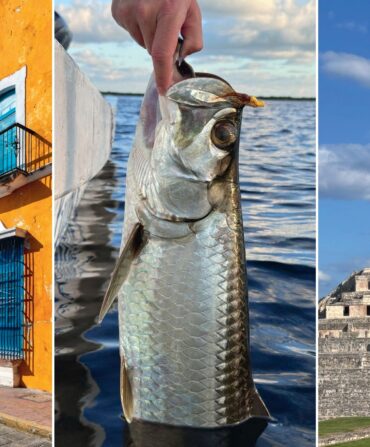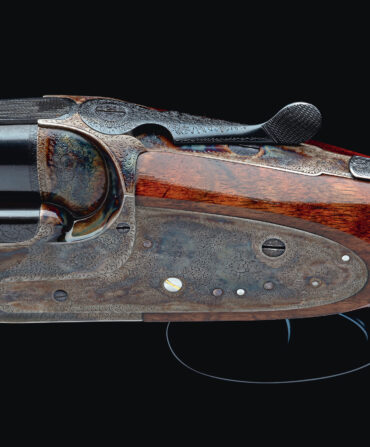Bret Biggart thought he knew what he was getting into. The forty-eight-year-old founder and CEO of the Austin, Texas–based Freedom Solar Power had plenty of experience in punishing endurance races. He’d twice completed the Leadville Trail 100 MTB, a one-hundred-mile mountain bike race through the Colorado Rockies. He’d raced the grueling Baja 1000 off-road race. Triathlons were a lark.
Then he and his paddling partner, Forrest Fauth, entered the Texas Water Safari in June. And Biggart admits, he finally met his match.
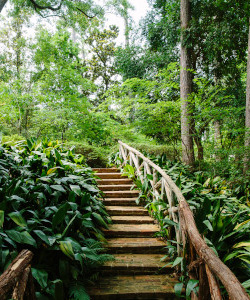
The Texas Water Safari is billed as the “world’s toughest canoe race,” but that might be underselling it a bit. First held in 1963, the race runs through Texas Hill Country and Texas Swamp Country and across San Antonio Bay. It’s a nonstop, 260-mile grind down the San Marcos and Guadalupe rivers, beginning in Aquarena Springs in San Marcos and finishing in Seadrift on the Texas Coast. Even the fastest paddlers take more than forty nonstop paddling hours to complete the race. Some straggle in with precious little time left before it closes a hundred hours after the start. There are a dozen categories in which to compete, from solo boats to canoes paddled by up to six racers. And not a single winner gets a dollar. There are first-place trophies, and plaques to top racers. Finishers below the top fifteen in each category get a pretty swell patch. Non-finishers take their lumps.
Biggart and Fauth had trained for months, paddling long sections of the race route. They fiddled with seat placement and plotted with their support team where they would resupply with water, ice, and food, the only help they could receive. They thought through the obstacles of alligators, navigating in the dark, and epic cases of butt rash, and spoke to other racers about the challenges of focus and physical dexterity when the body has been eating itself for thirty-six, or fifty-two, or seventy hours.
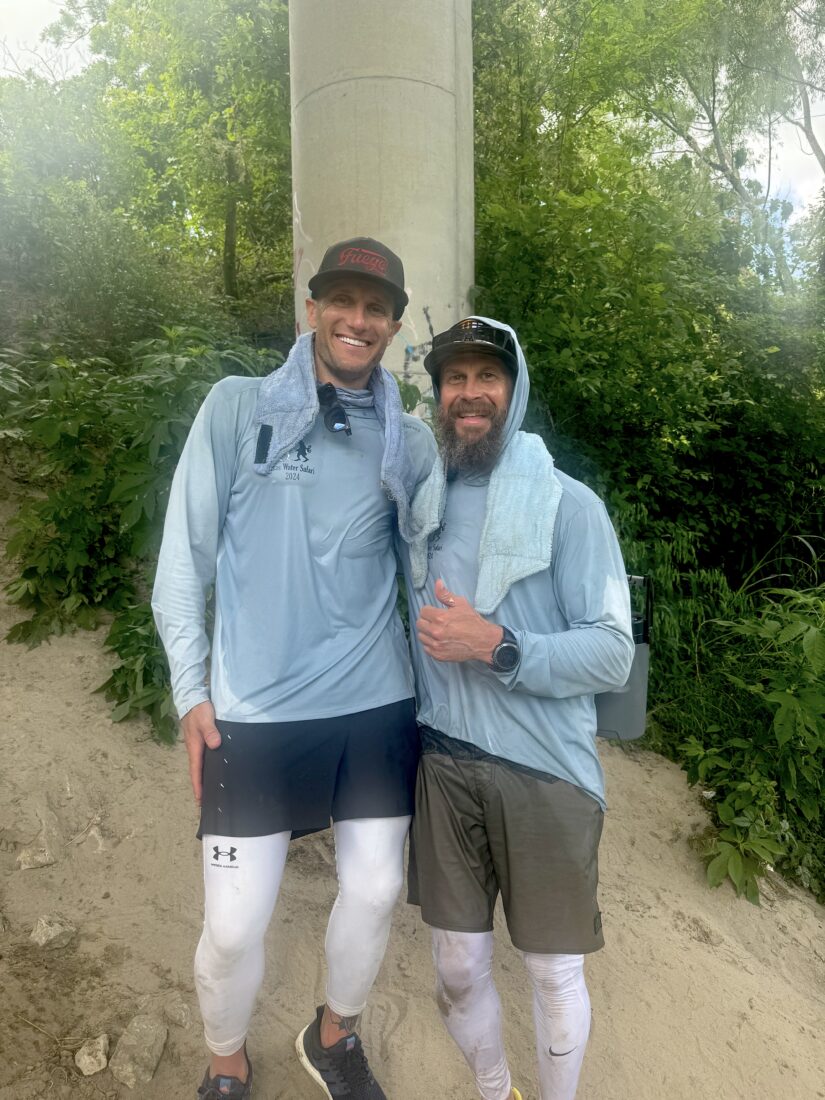
And then they were off. The race started at 9 a.m. on Saturday, June 8, with one hundred fifty-nine boats. Racers had until Wednesday at 1 p.m. to finish. The first thirty-six hours weren’t too bad, Biggart says. “At first, there are people on the bank cheering you on,” he explains. “There’s a lot of energy. It’s gorgeous country.” But during the second night of paddling, the Mama Tried team hit the first of a wrenching cascade of tough breaks.
Around 2 a.m. on Monday morning, the pair flipped their canoe near the Cuero checkpoint. The darkness was disorienting. They righted Mama Tried and shook off the setback.
As dawn broke, Biggart says, a hip injury from an earlier motocross accident began to throb. A few hours later, the throb had turned to fire. He could barely walk but had to get out of the canoe to pull it across a shallow stretch of river. He was struggling to stay upright when the water knocked him off his feet, and he was swept into a streamside logjam. Fauth sprinted to the logjam, but Biggart had disappeared. “My paddle popped out on the other side, my glasses popped out, my hat popped out, but I’m stuck under that thing,” Biggart recalls. “I could see the surface of the water. I thought for sure I would drown. Then I gave it one last try and broke free and pulled myself out. Forrest was on the other side of the river, eyes like saucers.”
The pair collected the boat and continued. They flipped again a few hours later. This time the canoe hung up on a submerged tree, costing them more time and more energy. They almost gave up. “But we were in the last third of the race,” Biggart says. “We were on the downhill stretch. At least, that’s what we were told.”
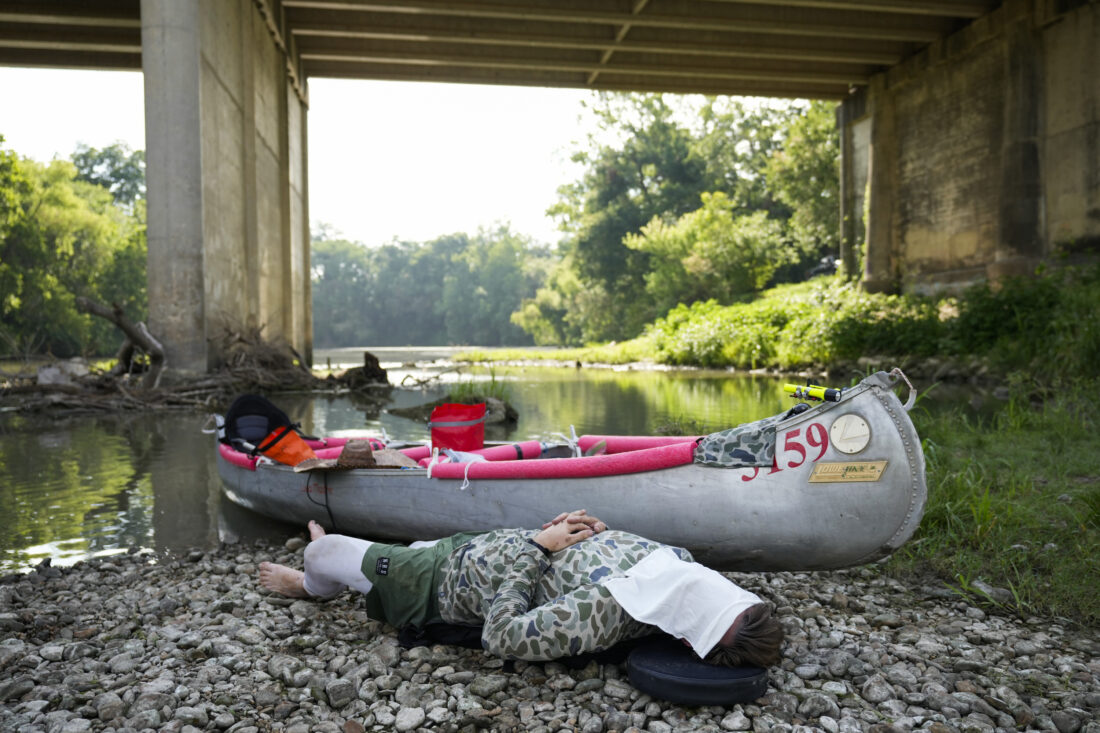
As it turned out, the downhill stretch is where the hallucinations kicked in. After more than two days of near-continuous paddling, the cramps and the butt sores were nothing compared to the head games: Women in white bikinis calling from the riverbank. Cartoon characters leaping through the overhead trees. At one point, Biggart thought he was in Italy.
About 3 a.m. on Tuesday morning, after nearly seventy hours, the pair pulled over to try and catch forty minutes of sleep. Biggart collapsed in the bottom of the canoe. “Just me and ten thousand mosquitoes,” he says with a groan. When he woke up, he felt worse than when he went to sleep. They were on the lower stretches of the Guadalupe, in a place racers call “the Swamp.” Alligators everywhere.
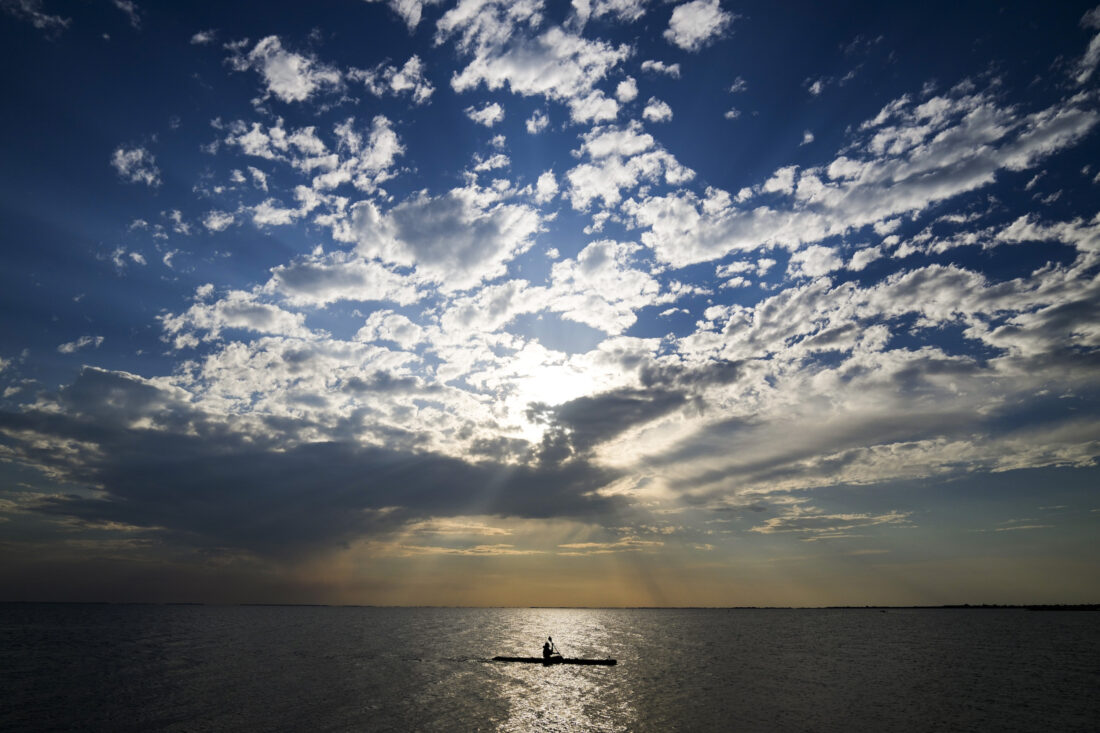
The weak light of morning brought more paddling. Always more paddling. Biggart could no longer stand up. At one point, he fell asleep and went overboard. He crawled back in the boat, but didn’t know where he was. “I slowly came undone,” he says. “I couldn’t paddle. I had taken off my pants. My mind was gone.”
At a bridge near the two-hundred-fifty-mile mark, he had no more left to give. With only about fifteen miles to the finish line, he was hallucinating and delirious. His support crew of friends and family pulled him out of the boat and stuffed him into an ambulance. He would spend two days in the hospital, treated for rhabdomyolysis, a breakdown of muscle tissue that affects the kidneys and causes confusion.
While Biggart was headed for the ambulance, Fauth decided to keep paddling for the finish line. But Texas wasn’t finished with the Mama Tried team. Paddling solo, Fauth made it to San Antonio Bay. He could see flashing yellow lights at the Seadrift boat ramp, marking the finish line. His support team ran along the shore, shouting encouragement and directions. Then, around 2 a.m., some two hundred yards from the finish, Fauth passed out in the boat and fell into the dark water. His canoe drifted away to bang against rock jetties. His wife and support team figured he had slumped over in the hull. When they got to the boat, it was empty. For a couple of hours they were in shock, thinking Fauth was lost. But he had been picked up by a passing shrimp boat.
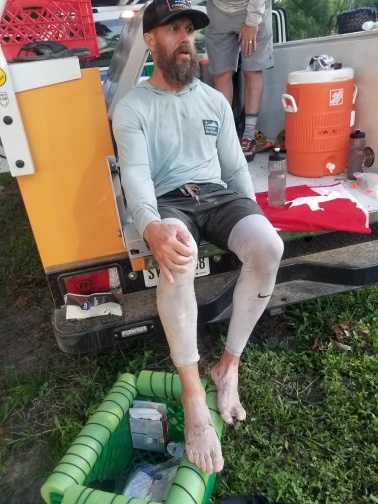
Of those one hundred fifty-nine teams that started the 2024 Texas Water Safari, fifty dropped out of the race. There would be no swell patch for Biggart and Fauth. But Biggart says the race only deepened his love for his native state. “The entire six-month process of training and the race itself was incredibly eye-opening,” he says. “I grew up here. This is my backyard, and I’m an outdoor enthusiast. But I had no idea this existed. I’d heard about this super tough, super cowboy race, but I had no idea the beauty and the mystique that has been all around me my entire life.”
Endurance races “push you to go farther than you think you can,” he adds. “And whenever you push yourself like that, you make the island of your life a little bigger. So I’m thankful for that. But I’ll tell anyone: This is a hard, hard, hard, f***ing race. I didn’t have a full appreciation for what’s out there in Texas, and I grew up here, so I do have a little burr in my saddle about this race. But that’s something I’ll think about later. Right now, I can barely sit down.”
Follow T. Edward Nickens on Instagram @enickens and find more Wild South columns here.
Listen to The Wild South, G&G’s new podcast hosted by David DiBenedetto and T. Edward Nickens and featuring conversations with sportsmen and sportswomen in the South and beyond.
T. Edward Nickens is a contributing editor for Garden & Gun and cohost of The Wild South podcast. He’s also an editor at large for Field & Stream and a contributing editor for Ducks Unlimited. He splits time between Raleigh and Morehead City, North Carolina, with one wife, two dogs, a part-time cat, eleven fly rods, three canoes, two powerboats, and an indeterminate number of duck and goose decoys. Follow @enickens on Instagram.


